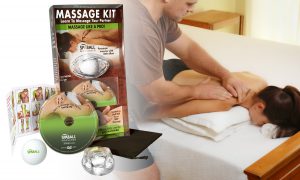Your brain is your prized possession and you pride yourself on handling stress and your accomplishments and how hard you work. You think “relaxation is for the weak and unmotivated.” Friends and family marvel at how you operate on so little sleep.
You are a SUPERSTAR?
Chronic stress, and not taking time to relax, kills brain cells. Literally! The same way a smoker hurts his lungs and an alcoholic hurts his liver, a workaholic hurts his brain.
When you are under stress, lots of oxygen-rich blood moves faster than usual to your brain and muscles, just in case you need to “fight” or “flee.” And this is good. But long-term stress overloads the body with adrenaline, cortisol and other hormones that are supposed to be for “emergency use only.”
Your poor automated system doesn’t know you are the Little Boy Who Cried Wolf … once again. You are an adrenaline junky!
This awesome survival system is not meant to be activated all the time.
Adrenaline causes a super-speedy release of glucose and fatty acids into your bloodstream. Your senses become super-awesome, your memory is sharp as a tack, and you can handle pain. This is a lot of very important activity in your body that prepares you to fight what you’re facing or run away from it. So your body makes a decision to shut down other functions that are not necessary, such as reproduction, growth, and immune systems.
Your body’s stress response can be too much of a good thing. If your cortisol levels are raised for weeks, or years, it can damage and kill brain cells.
Too much stress can also raise your blood pressure and the fats in your blood make it more likely you will have a heart attack or stroke … AND make you crave fatty foods.
Here’s the good news … not all stress is bad.
A little stress releases norepinephrine, which is necessary for new memories and good mood. You start thinking creatively and problems feel more like challenges, which helps your brain grow new connections.
Stress management is the winning ticket. Not stress elimination It’s all about balance.
Here are a few unhealthy ways of coping with stress:
- Smoking
- Drinking too much
- Overeating
- Using pills to relax
- Sleeping too much
- Procrastinating
- Being busy all day to avoid facing problems
- Taking out your stress on others
Healthy ways of coping with stress include the following:
(It only takes about 20 min a day to benefit.)
- Go for a short walk … without looking at your cell phone.
- Workout and sweat, even for a short time
- Play with your dog… or whatever you have.
- Get a massage. My fav!
- Meditate. This is harder than it seems, but hugely beneficial. You can do it anywhere and it doesn’t cost any money.
- Watch a comedy. Another one of my favs!
- Slowly take 3 really deep breaths. Try it right now. Stretch out your lungs!
- Don’t take on more than you can handle. Learn to say NO. (I’m finally mastering this.)
- Limit the time around people who stress you out.
- Delegate items on your to-do list.
Everyone has his or her own way of de-stressing. It’s more important than ever to take care of our brains and health, and take care of our loved ones.
I’m a ma ssage therapist and not only do I help people with their muscle pain, but also help them to relax and get their minds off the hamster wheel … if for only an hour or two.
ssage therapist and not only do I help people with their muscle pain, but also help them to relax and get their minds off the hamster wheel … if for only an hour or two.
I also teach them how to take care of themselves at home when I’m not around. Teaching people to take care of themselves AND their loved ones is VERY important and rewarding to me. Because of this I’ve created the “SPABALL Massage Kit” with tips, techniques, and tools. The DVD in this kit is the same information that I’ve taught my private clients to enjoy at home.
It teaches you:
- how to give a relaxing therapeutic massage.
- how to set up your bed at home for comfortable and effective massages.
- how to use the SPABALL Massager to apply more pressure in tight muscles with less effort.
- benefits of cooperative massage from psychologist Christopher Burr, PhD.
- tricks that massage therapists use to relieve stubborn muscle knots through “Trigger Points.”
- how to give a massage without hurting your OWN back.
- tips that will put your partner in a SUPER-relaxed state.
- self-massage tips that help with the most commonly complained-about muscle issues!
I hope this information helps you! Please feel free to contact me personally!
cura ut valeas
Heather Karr, LMT
Thousand Oaks, California
